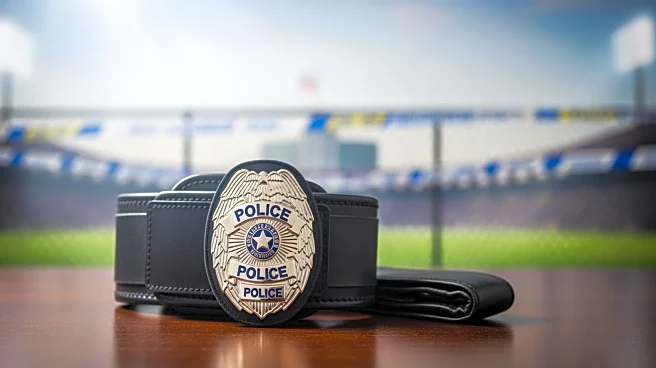What's Happening?
During a recent Texas A&M football game against South Carolina, a Texas state trooper was relieved of his game-day duties following an incident involving South Carolina players. The incident occurred after South Carolina's Nyck Harbor caught an 80-yard
touchdown pass and was followed by teammate Oscar Adaway III. As the players were returning to the field, the trooper made contact with Adaway, wedging between him and Harbor, and then pointed at them in a manner that appeared to be scolding. The Texas Department of Public Safety (DPS) acknowledged the incident and stated that the trooper was sent home. The DPS's Office of Inspector General is investigating the matter further, but no additional information has been released.
Why It's Important?
This incident highlights the sensitive nature of interactions between law enforcement and athletes, particularly in high-stakes environments like college football games. The decision to relieve the trooper of his duties underscores the importance of maintaining appropriate conduct and the perception of fairness and safety during sporting events. For Texas A&M and the broader college sports community, this incident may prompt a review of security protocols and the role of law enforcement at games. It also raises questions about the training and oversight of officers in such settings, potentially impacting how future incidents are managed to ensure the safety and respect of all participants.
What's Next?
The ongoing investigation by the DPS's Office of Inspector General will likely determine any further actions regarding the trooper involved. Depending on the findings, there could be implications for how law enforcement is deployed at future Texas A&M games and possibly other college sporting events. Stakeholders, including university officials and law enforcement agencies, may need to collaborate on developing clearer guidelines and training to prevent similar incidents. The outcome of this investigation could influence policies across other universities and sports organizations, emphasizing the need for respectful and non-confrontational interactions between security personnel and athletes.
















